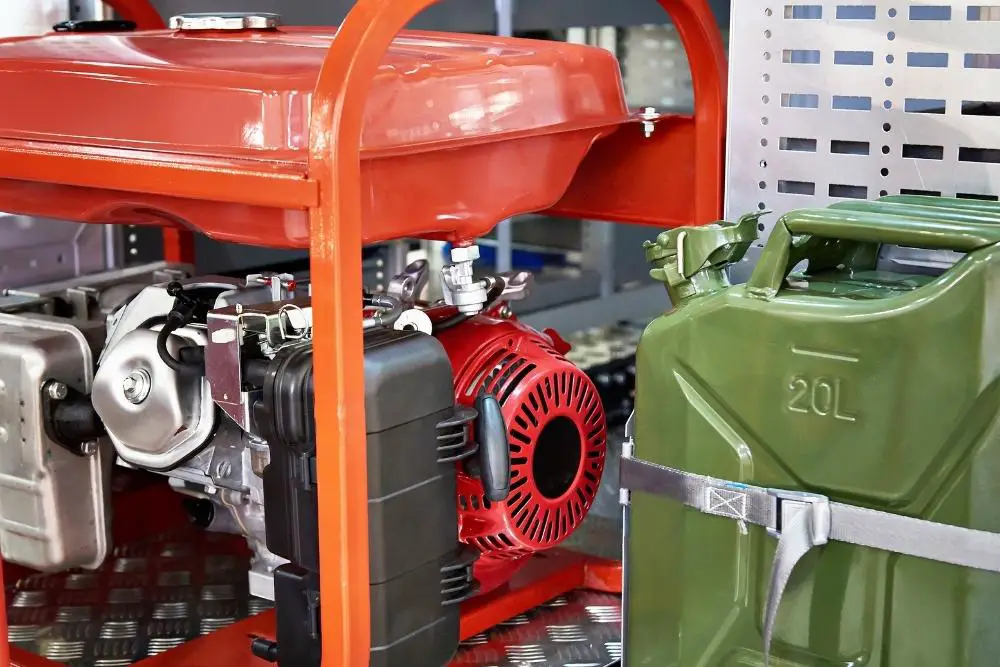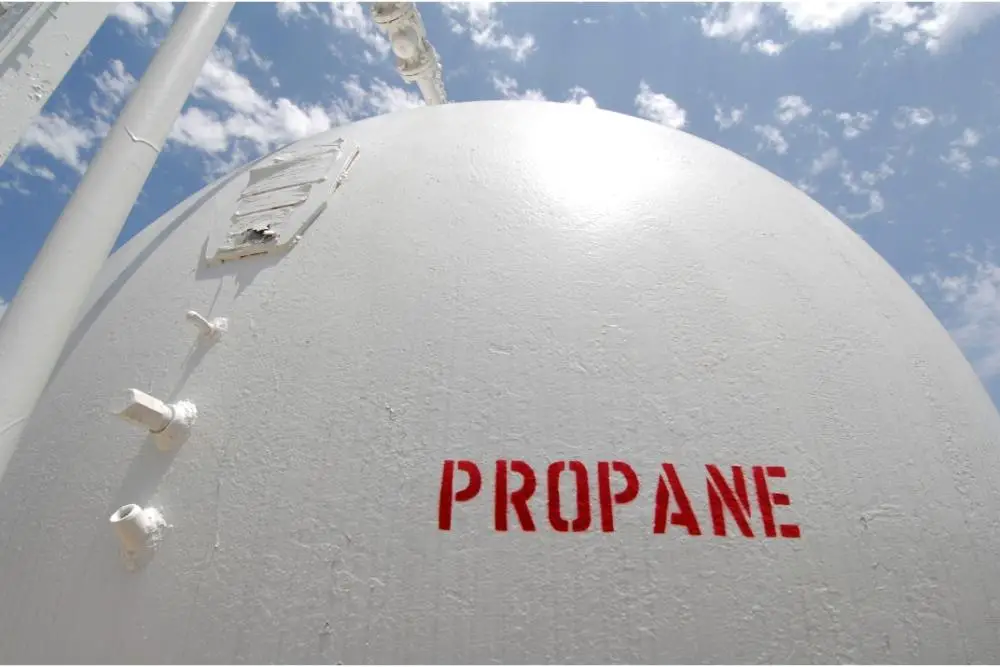Are you looking for an emergency fuel to store and aren’t sure which is best? Perhaps you need fuel for your generator, cooking, or heating your home and can’t decide which one to stock?
Or maybe you just want to know how long your emergency fuel will last? Whatever your reason might be, we have the answer for you!
We know how challenging it can be to prepare for emergencies. A world without power is daunting, and the uncertainty of when disaster hits leaves many of us unsure how best to prepare.
We don’t want to waste fuel, but we don’t want to be without either. So how do we find the best fuel? How can we better prepare? Suddenly these questions keep you up at night as you worry about the future.
Well, no more! Today we are here to answer all your fuel questions. Keep reading to find out how long alternative fuel lasts and how best to store it!
Knowing this information can help you find the right fuel that will power you and your family through whatever life throws at you!
Fuel For An Emergency Generator
The following fuel options can be used to power an emergency generator should we lose electricity! The shelf life of these is included below too.
- Solar – renewable and indefinite shelf life
- Natural gas – has an indefinite shelf life
- Gasoline – lasts for less than one year
- Propane – indefinite shelf life
- Diesel – shelf life of 18 to 24 months

Fuel For Heating Your Home
The following fuel options will provide heating to your home during a power outage. You can use any of these to keep yourself warm when your radiators turn cold! We have also included the shelf life of these options for you to see.
- Kerosene – five-year shelf life
- Propane – lasts indefinitely
- Alcohol – lasts indefinitely
- Firewood – lasts indefinitely
Fuel Options For Cooking
The following fuel options are perfect for when you need to cook and don’t have electricity. We still need to eat, and warm food in a world without power will feel fantastic when it hits your stomach. We’ve included the shelf life of these fuel options too.
- Butane cartridges – lasts for eight years
- Solar – renewable and lasts indefinitely
- Firewood – lasts indefinitely
- Alcohol – lasts indefinitely
- Propane – lasts indefinitely
When deciding which emergency fuel you will want to store, you need to consider what is available to you at that time, along with the shelf life that best suits your needs. Some emergency fuels can be hard to get hold of depending on your location and any shortages, so be sure to check what’s around before making your decision.
You will also want to consider how you will safely store the fuel until it is time to use it. Be sure to check out online tutorials about the best way to store your emergency fuel if you aren’t sure. There are plenty of options out there to help find the best storage solution for you and your fuel.
In an ideal world, it’s best to opt for the fuel with the longest shelf life and those that can be stored safely. To help you find the best fuel for you, we will look at the above fuels in more detail. Keep reading to find out more about the shelf life of these popular fuel options!
Fuels That Last Indefinitely
First up, let’s look at the fuels with an indefinite shelf life! These can be stored for almost forever, providing they are placed in the ideal storage environment. So what fuels are these?
Alcohol
Alcohol can be used as fuel and comes with an indefinite shelf life providing the container is unopened. As alcohol can evaporate quickly and lose its potency once opened, it’s best to keep it in its original container and unopened until you need to use it.
Butane
As a gas, butane has an indefinite shelf life. However, the cartridges do not. They can rust, and the valve seal can deteriorate over time, causing leaks. These leaks can be dangerous and could cause explosions or fires, not what you want! Be sure to check on your butane supplies for any leaks or deterioration.
For best results, store your butane in a cool and dry location. According to the manufacturer, this can give it a shelf life of eight years.
Firewood
Firewood also lasts indefinitely, but its energy output can decrease over time. This energy decrease is slow, just like when a fire starts to go down after a while. Firewood is a popular emergency fuel that many people choose to store.
You can store it with ease; just ensure that it remains dry.
Charcoal Briquettes
Most households will already have some charcoal briquettes, usually used for BBQs. They can keep indefinitely, too, providing that you keep them dry, as charcoal can absorb moisture over time, making it useless.
However, if your charcoal does absorb some moisture, all is not lost! You can renew the charcoal by laying it out in a single layer on a hot and sunny day, and the sun will dry out the charcoal, and you can use it again.
To prevent your charcoal from becoming wet, place it in a moisture-proof container.
Wood Pellets
Wood pellets are made from compressed wood and will last indefinitely too! To ensure their longevity, place them somewhere dry and keep them out of direct sunlight.
Fuel Tablets
Fuel tablets are ideal for starting a small cooking fire or a fire in general. These tend to come with an indefinite shelf life and can safely keep their original packaging for years.
Natural Gas
While natural gas has an indefinite shelf life, it is not the best fuel to store at home. The properties in natural gas aren’t ideal to be kept in a household tank. Providing access to natural gas is available, then it can be a fine option for power outages, but how long natural gas would be available in a power outage is difficult to say!
Instead of relying on it, consider natural gas as a backup bonus that could be used where possible rather than your main fuel source.
Propane
Propane will not go bad, and it comes with an indefinite shelf life and does not degrade as other substances do. Your only limitation with propane is its container, and any shelf life printed on propane refers to the gas cylinder, not the propane.
High-quality propane tanks can last for thirty years or longer, offering you excellent shelf life. If you store them correctly, you can extend their life too! You want to prevent exterior rust as this can shorten your propane container’s shelf life.
If you opt for aluminum or composite cylinders, you don’t need to worry about the rust risk! Be sure only to use high-quality valves and fittings, too, as this can help extend the life of the containers and ensure easy use of your propane.

Fuels That Last For Five Years
Now that we have covered fuels that last indefinitely let’s look at those with a shorter shelf life. These fuels have an average shelf life of roughly five years, but you can increase or decrease their shelf life depending on how they are stored! Let’s see what those fuels are now!
MRE heaters
MRE heaters have a shelf life of roughly five years. After that time, a chemical reaction will take longer to occur, meaning it won’t heat up as hot as before. You can still use it, but it will not perform as well as it would previously.
Kerosene
Kerosene can last for up to five years if kept in its original packaging or an approved container. Condensation adds water to kerosene as it ages, and bacteria and mold can also create a sludge that will break down the fuel. Not ideal!
Thankfully, there is a solution. Adding a fuel stabilizer annually will extend the life of kerosene and prevent bacteria and mold from breaking the fuel down.
Fuels That Last Two Years
Now we have fuels with a shorter shelf life of roughly two years. While two years doesn’t sound like a long time, the storage conditions here impact the shelf life. Don’t panic, though, as we have some tips that can help you store these fuel options so that they last longer!
White Gas
White gas can be stored for five to seven years, providing you keep it unopened and in its original container. Once you open the fuel, you can use it for two years, and after this point, it becomes unviable and should not be used.
Diesel
Depending on the storage conditions, diesel can last for 18 to 24 months. You can store diesel for 12 months or more when keeping it at 68 degrees Fahrenheit. If you keep it at temperatures higher than 86 degrees Fahrenheit, then you can expect your diesel to last for 6 to 12 months. That’s quite a difference, so be sure to check the temperature before you store your diesel!
Any exposure to air, heat, or water can shorten that shelf life, giving you even less time to use the fuel! Adding a fuel stabilizer annually can help to extend the shelf life, though.
It’s also worth rotating your fuel within 1 to 5 years and replacing it with fresh fuel when needed too. If you have low sulfur diesel fuel, then it can last for at least five years. You could extend this to ten years if it was kept underground with regular inspection and included the correct additives.
Be sure to do your research when keeping diesel to ensure that you keep the fuel in the best conditions possible!
Fuels With A Short Shelf Life
Below we have the fuel that comes with a super short shelf life. It’s not best to store large quantities of this fuel, as it’s unlikely you will use it all before it expires! Let’s take a closer look at this fuel.
Unleaded Gasoline
Gasoline comes with a short shelf life of six to nine months if stored in an airtight container. You can increase this shelf life, too, if you add a good quality fuel stabilizer.
Gasoline degrades, and you will notice gummy resin deposits and layers of varnish in it, making it unusable! If you attempted to use it, you could corrode system components and damage your equipment, something you want to avoid if there’s no power! Be sure to check your fuel regularly and rotate it to ensure you don’t use expired gasoline.
What Is The Best Emergency Fuel?
The best emergency fuel will vary from person to person. So it’s best to pick the fuel that will best suit your needs and can be stored safely until needed. Where possible, opt for the fuel that comes with the longest storage life.
Doing so helps avoid rotating fuels that you don’t usually use, which can be a pricey challenge! Instead, opt for fuel and devices that you can use when the power goes. Remember, you only need enough fuel to cover your basic needs until the world becomes more normal again, don’t stock more than you need.
Don’t forget to check out tutorials online to find some fantastic storage solutions for your fuel!